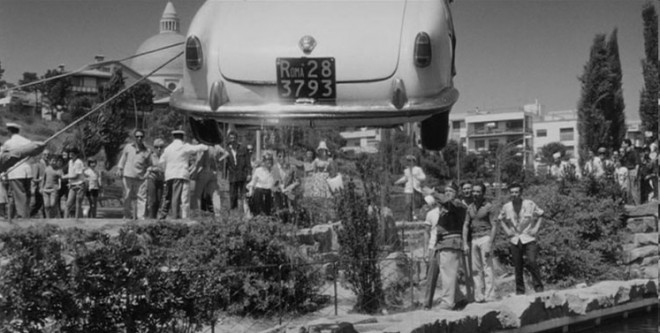“Every Cinderella has her midnight.”
Claudette Colbert sparkles as Eve Peabody, a sou-less American in Paris who, at the behest of wealthy Georges Flammarion, romantically draws out Jacques Picot to pry him away from Flammarion’s wife. Meanwhile, cabdriver Tibor Czerny, an Hungarian emigré (Don Ameche, serviceable), in love with Eve, does his best to derail what appears to be her romance with Picot.
Mitchell Leisen directs efficiently, while also allowing (much) more of his gay sensibility into Midnight than ever made it into most other films of his. Regrettably for a film that enters taxis and other cars moving in streets and on roads, Leisen is at his least convincing using back projection. (To make this sort of thing work, one must tend toward expressionism—as Clifford Odets does, say, in None But the Lonely Heart, 1944.) Fortunately, most of the film’s action unfolds in lavish interiors.
But why go on about Leisen when it is the script and the actors that count most heavily here? Midnight is one smart, romantic screwball comedy—and why wouldn’t it be, given that the authors of the script are the Charles Brackett-Billy Wilder team, working from a Cinderella-story by Edwn Justus Mayer and Franz Schulz? Stealing the show is an hilarious John Barrymore as Georges Flammarion, and Mary Astor is nearly as marvelous as Hélène, Flammarion’s philandering wife—all this just three years after the scandalous exposure of Astor’s love affairs, with Barrymore and others, during her suit to win custody of her daughter. Barrymore’s then-wife, Elaine Barrie, also acted in the film, perhaps to keep an eye on her husband’s celebrated—ahem!—“great profile.”
Good fun, this comedy, but it is no Ninotchka, made later the same year by Ernst Lubitsch, and also written by Brackett and Wilder.
